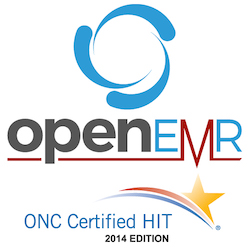vendor lock-in
See the following -
openEHR: A Game Changer Comes of Age
 I’ve been watching openEHR over more than fifteen years and have always been impressed by its potential to enable us to do things differently, but it’s been a slow burn, with limited take up, particularly in the United Kingdom (UK) where it was invented. However, recent developments mean that I think this is about to change and that openEHR is going to take off in a big way which is going to revolutionize how we think about and do digital health and increase the speed at which we can do it by at least two orders of magnitude. Why do I say this and what evidence is there to support my assertion?
I’ve been watching openEHR over more than fifteen years and have always been impressed by its potential to enable us to do things differently, but it’s been a slow burn, with limited take up, particularly in the United Kingdom (UK) where it was invented. However, recent developments mean that I think this is about to change and that openEHR is going to take off in a big way which is going to revolutionize how we think about and do digital health and increase the speed at which we can do it by at least two orders of magnitude. Why do I say this and what evidence is there to support my assertion?
- Login to post comments
OpenEMR Consortium Unveils Proposal for an Open Source U.S. Coast Guard EHR
 ...a consortium of OpenEMR vendors united as one to propose an open source solution for a modern, customizable, and cost effective EHR to the USCG. The OpenEMR Consortium submitted their proposal to the USCG on June 2nd, 2017 and it was released to the public on July 5th, 2017. The proposal is based on the EHR software package, OpenEMR. OpenEMR is an open source, fully functional EHR software package that is ONC Certified as a Complete EHR.
...a consortium of OpenEMR vendors united as one to propose an open source solution for a modern, customizable, and cost effective EHR to the USCG. The OpenEMR Consortium submitted their proposal to the USCG on June 2nd, 2017 and it was released to the public on July 5th, 2017. The proposal is based on the EHR software package, OpenEMR. OpenEMR is an open source, fully functional EHR software package that is ONC Certified as a Complete EHR.
- Login to post comments
OSEHRA & EHR: Finding Value in Open Source EHR
With federal funding and the support of the Department of Veteran Affairs (VA) and the Department of Defense (DoD), OSEHRA challenges the US government’s traditional approach to publishing technology, “the museum approach.” According to Mun, in this method the government produces a technology, releases it to the public, and leaves it to users to continue its development. The establishment of OSEHRA represents a novel approach by the US government that embraces open source innovation.
Read More »
- Login to post comments
OSEHRA 2017: Microsoft, OpenStack, IBM Support VistA in the Cloud
 This year’s OSEHRA 2017 Open Source Summit proved to be another major milestone in the transition from locked-in vendor-controlled health information technology to an open solutions approach. One of the major news stories at the summit was the decision by Microsoft to join OSEHRA and collaborate with the Open Health community. Another major presentation was that of Martin Rice, Director of the Division of State System for the Centers for Medicare and Medicaid Services (CMS) and Clyneice Chaney, Principal Systems Engineer. In their presentation (video* and PowerPoint*), Rice and Chaney described how CMS is transitioning to an open/modular approach to State Medicaid IT systems.
This year’s OSEHRA 2017 Open Source Summit proved to be another major milestone in the transition from locked-in vendor-controlled health information technology to an open solutions approach. One of the major news stories at the summit was the decision by Microsoft to join OSEHRA and collaborate with the Open Health community. Another major presentation was that of Martin Rice, Director of the Division of State System for the Centers for Medicare and Medicaid Services (CMS) and Clyneice Chaney, Principal Systems Engineer. In their presentation (video* and PowerPoint*), Rice and Chaney described how CMS is transitioning to an open/modular approach to State Medicaid IT systems.
- Login to post comments
PwC Submits Bid to DoD for Open Source EHR System
PwC US today submitted its bid for the Department of Defense (DoD) Healthcare Management Systems Modernization (DHMSM) Electronic Health Record (EHR) contract. The proposal, called the Defense Operational Readiness Health System (DORHS), would help modernize the military health system by enabling doctors and healthcare professionals inside and outside of government to more efficiently treat our service members and their families through the creation of a single source for their medical records.
- Login to post comments
Red Hat Helps Intermountain Healthcare Migrate to an Open Source Infrastructure
 Red Hat, Inc...today announced that Intermountain Healthcare is using Red Hat solutions to help the company transform its existing infrastructure by migrating services from a proprietary platform to an open source Red Hat stack. By implementing Red Hat platforms, Intermountain Healthcare is moving towards a more streamlined and modern IT environment offering enterprise-wide IT automation and on-demand services, enabling them to do more while decreasing complexity.
Red Hat, Inc...today announced that Intermountain Healthcare is using Red Hat solutions to help the company transform its existing infrastructure by migrating services from a proprietary platform to an open source Red Hat stack. By implementing Red Hat platforms, Intermountain Healthcare is moving towards a more streamlined and modern IT environment offering enterprise-wide IT automation and on-demand services, enabling them to do more while decreasing complexity.
- Login to post comments
Should the DoD Buy Epic, or Cerner, or GE, or...?
After a lengthy foray into building its own EHR from scratch (AHLTA) [...] and another shorter detour through the fantasy land of an open-source integrated EHR (iEHR) [...], the DoD announced that it will begin looking for a commercially available product to suit the DoD’s unique needs. Read More »
- Login to post comments
Should The DoD Buy Epic, Or Cerner, Or GE, Or…?
The Department of Defense (DoD) is in the market for an EHR solution… again. After a lengthy foray into building its own EHR from scratch (AHLTA), [...] and another shorter detour [...] with the Veteran Administration (VA), [...] the DoD announced that it will begin looking for a commercially available product to suit the DoD’s unique needs. Read More »
- Login to post comments
Tech Rivalries Impede Digital Medical Record Sharing
Since President Obama took office, the federal government has poured more than $29 billion into health information technology and told doctors and hospitals to use electronic medical records or face financial penalties. But some tech companies, hospitals and laboratories are intentionally blocking the electronic exchange of health information because they fear that they will lose business if they share information on patients with competing providers, administration officials said. In addition, officials said, some sellers of health information technology try to “lock in” customers by making it difficult for them to switch to competing vendors.
- Login to post comments
The Postmodern EHR: The Data Layer
 This second approach entails defining a data layer, which is the most important aspect of the Postmodern EHR architecture from my previous post. Why is this the most important layer? Most healthcare organizations are beginning to realize that their data is more valuable than their applications. Data has become a key asset, since good data is key to improving outcomes, managing chronic disease and enabling population health management. And it needs to be managed for the lifetime of the patient. Which application is going to last that long? What happens to health data when we switch applications?
This second approach entails defining a data layer, which is the most important aspect of the Postmodern EHR architecture from my previous post. Why is this the most important layer? Most healthcare organizations are beginning to realize that their data is more valuable than their applications. Data has become a key asset, since good data is key to improving outcomes, managing chronic disease and enabling population health management. And it needs to be managed for the lifetime of the patient. Which application is going to last that long? What happens to health data when we switch applications?
- Login to post comments
Top 12 Reasons Health Providers Pay too Much for IT
Healthcare pays more than any other industry for information technology. At least according to a new survey. "Our analysis shows healthcare organizations pay an average 17 percent more than that of the other 29 industries we sampled," write the authors of a paper by Net(net), which bills itself as a consultancy specializing in IT optimization, "and 33 percent more than the industry with the lowest average costs (food service).” Read More »
- Login to post comments
UK institutionalizes preference for open source over proprietary IT
The U.K. national government issued March 14 a beta version of its Government Services Design Manual , which formalizes a preference for open source technology for digital services..."Use open source software in preference to proprietary or closed source alternatives, in particular for operating systems, networking software, web servers, databases and programming languages," instructs the manual. Read More »
- Login to post comments
Use open source software - it makes things better, says UK
Open source gets the official seal of approval from the UK government in new guidelines that mandate its use over proprietary products. Read More »
- Login to post comments
VistA and Epic: A Tale of Two Systems
Over the last few weeks, access to VA health care for veterans has been all over the news. At the same time, the DoD is moving to procure a replacement EHR system. So it seems there is no time like the present to review a recent RAND case studies report entitled “Redirecting Innovation in U.S. Health Care: Options to Decrease Spending and Increase Value.” The case studies include a chapter comparing America’s two most broadly deployed EHRs: The VA’s VistA and Epic.
- Login to post comments
Why DoD EHR Modernization Will Fail
As the U.S. Department of Defense zeroes in on determining which bidding group will be awarded the coveted contract to modernize its electronic health record system, Loren Thompson, COO at the nonprofit Lexington Institute, says the effort is doomed to fail. As evidence, he uses the words that Christopher A. Miller, the program executive overseeing the project, used in testimony before the Senate's defense appropriations subcommittee. Read More »
- Login to post comments